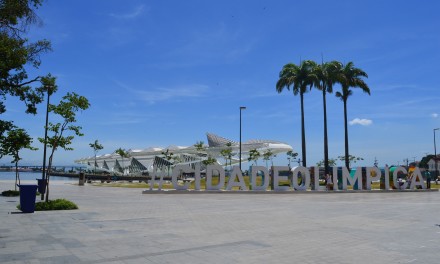Getting lost can be a terrifying experience. Now imagine getting lost in a completely unfamiliar place. What do you do? What can you do?
Scary, right?
Fortunately, there are a few ways to better prepare yourself for a situation like this.
Write Down the Address and Phone Number of the Consulate
It’s a good idea to record down on paper and electronically the address and phone number of the U.S. Embassy (or your home country) in the country you’re traveling to. You can find this information here.
The U.S. Embassy (any embassy, really) is a landmark, the North Star if you will. Most citizens will be able to point you in the right direction or at least tell you you’re way off.
Finding the Embassy can be especially helpful in the case you are robbed of your passport or other means of identification. For some more tips on what to do if you’re robbed abroad, check out this post.
Download Google Translate
Google recently announced a great new feature of its Translate app – offline translation!
If you’re in a country where there is a language barrier, this tool will come in handy as you won’t have to rely on having internet connection to communicate.
If you’re lost and can’t speak the language then this app will help, but I would be cautious about making it obvious that you’re a foreigner and you don’t know where you are. Maybe try a phrase like “Hello, can you point me to the Eiffel Tower.” or “Hello, could you tell me where I can catch the train to the city center?” Offer a location that doesn’t totally say that you’re lost.
Of course, it’s more than likely that you won’t have access to technology in a situation like this so be sure to learn a few common phrases in the local language.
Keep Note of Landmarks
I won’t insult your intelligence by thinking you don’t already know that remembering what the Eiffel Tower looks like will help you when you’re lost. The landmarks I’m talking about are the more minute and subtle characteristics of a city that you may not blatantly realize.
In Philadelphia, for example, the major universities like Temple, UPenn, and Drexel are very close to City Hall. If you find yourself at LaSalle, you’re quite a ways away from downtown.
In New York City, Central Park and Battery Park aren’t close, but Central Park is closer to Times Square.
Situational awareness is the name of the game so when you’re in a new place, try to be like a sponge and take in the surroundings. It could save your life!
Bring an Unlocked Phone
Traveling with an unlocked phone (or being a T-Mobile subscriber) can be the difference between being lost and actually being lost. The reason is that when you’re in a foreign country, you’ll most likely be able to purchase a local SIM card. The SIM will either enable you to make phone calls, send SMS, or surf the internet…or all three!
Internet = GPS! And GPS is your friend!
Internet Cafe
Check out this website for a decently populated directory of internet cafes. An internet cafe will come in handy for obvious reasons. Be sure to take a paper map and plot each cafe in the area you’ll be visiting.
In addition to internet cafes, try to find a reputable store with a widely-known brand name. For example, McDonald’s, Starbucks, Illy, etc. Employees at these locations are under a stricter protocol than most and it’s a pretty safe bet they’ll look out for your best interests if you’re lost.
Don’t Panic
This is going to be difficult, but if you’re lost the absolute last thing you should do is panic. It’s at this moment that you’ll need to have absolute clarity in your thinking because it could very well mean the difference between life and death.
No matter how serious the situation, go into survival mode. Be skeptical of absolutely everything you encounter and be vigilant.
Have you ever been lost in an unfamiliar place? How did you handle it?




[…] the next time you find yourself in a big, unfamiliar city and feeling overwhelmed, remember these […]
[…] Getting lost can be a worrying experience, and sometimes may lead you to areas you would rather not visit. This is where an element of preparation can come in handy. Equip yourself with a compass, a map and a seperate phone battery should you have them to use. Portable charging devices can often help your phone get more juice. A second, simple and small phone can help you stay in communication with others, as well as always traveling with a friend. This can help you avoid getting lost should you wish to explore around cities, small towns or forests.… Read more »